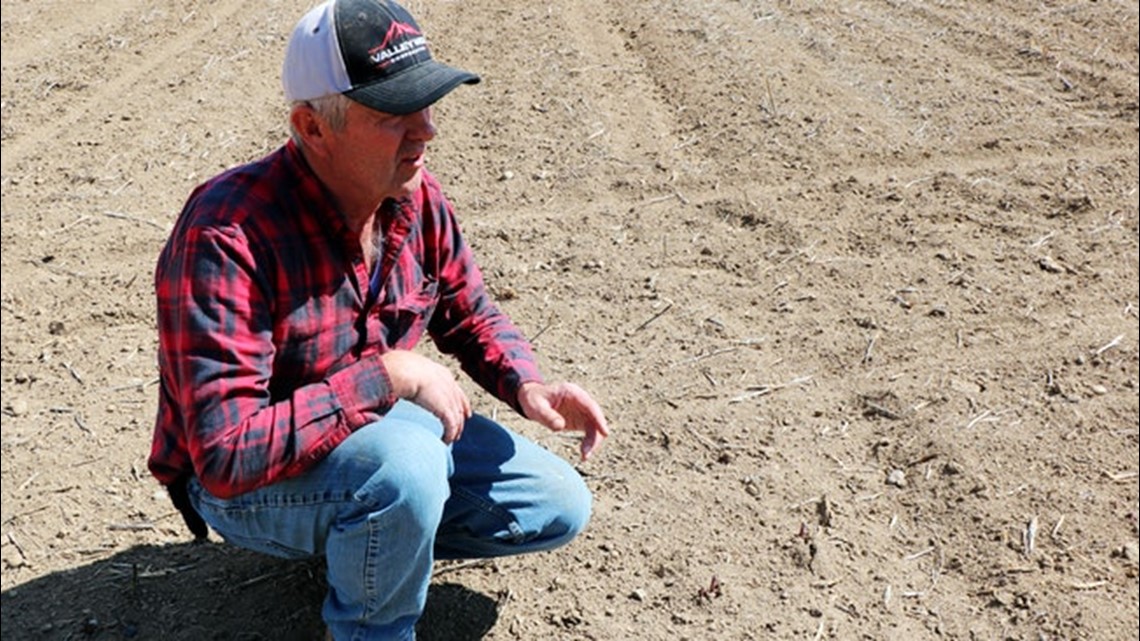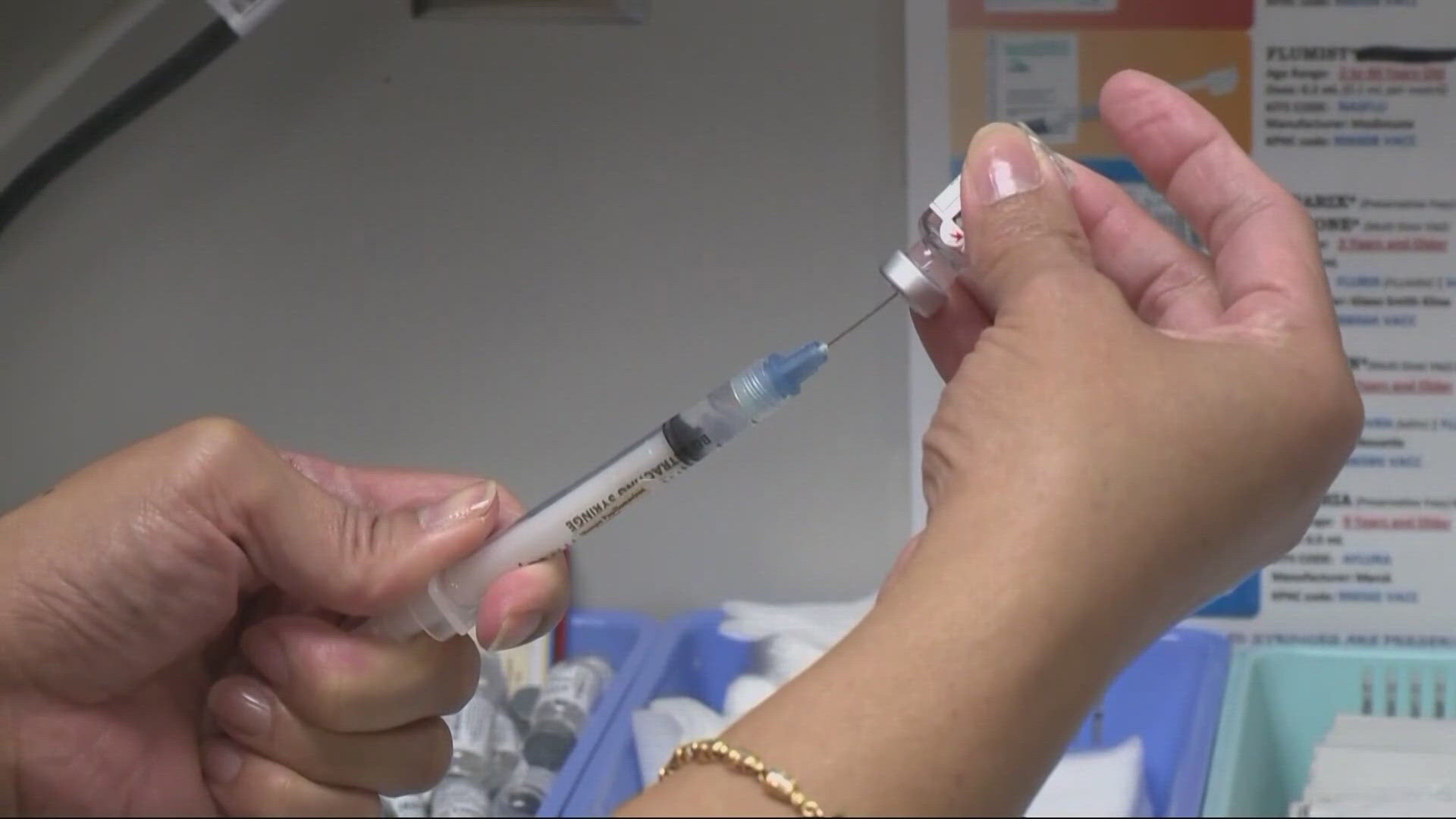NYSSA, Ore. – The asparagus on Craig Froerer’s Nyssa farm was in danger of not making it to the stores this year.
It threatened to grow tall and ferny without the farm workers he relies on to pick them. On Tuesday the U.S. consulates in Mexico closed their doors and announced a halt to visa procedures because of the COVID-19 epidemic.
The response from growers across the nation was lightning quick.
By Thursday morning, farmers were notified that the State Department will continue to process petitions for H-2A visas for agricultural workers, prioritizing returning employees who are eligible for an interview waiver.
“I think part of that was the pressure that was applied from many growers across the nation,” said Froerer, who was among a group that rushed to call senators and Congressmen.
For Froerer it was a relief. The H-2A program fills openings when there aren’t enough workers locally to meet demand.
Froerer brings about 40 employees from Mexico on H-2A visas every year and most of them are returning. But for growers who are bringing workers for the first time, the closure of the consulates in Mexico may have repercussions.
The State Department is not currently issuing new H-2A visas.
For Froerer that means he’ll be short 15 employees this year. It will mean that he’ll lose some of his yield. Instead of having the manpower to pick asparagus – his most labor-intensive crop – twice a day, he’ll have to limit the harvest to once a day.
Oregon growers have increasingly relied on the H-2A program in recent years.
On Froerer’s farm, the workers pick asparagus, plant sweet potatoes and weed hemp and onions.
“If we don't get those people, we won't be able to do that so that will have a definite impact on the commodities market in the coming year,” he had said the day after finding out that visa procedures would be suspended.


The day the suspensions were announced, national agricultural groups urged Secretary of State Mike Pompeo to recognize H-2A and other visa petitions involving agricultural workers as “essential.” The letter called on U.S. consulates to treat these petitions as “emergency visa services.”
“There’s been a labor shortage in America for quite a few years,” Froerer said. “It’s gotten worse every year.”
Roy Vargas, advisor for the Small Business Development Center at Treasure Valley Community College, said local growers have been using the program more and more over the last five years.
A delay in visa procedures threatens a ripple effect on farms all over.
Farmers who bring workers on H-2A visas make it easier for other growers to hire locally. But without the H-2A labor, farmers could be competing for the same workers in the local force.
And they can be hard to come by.
The H-2A program requires proof that farmers struggle hiring locally.
Froerer has been posting job ads for the past two weeks. Two people responded.
He said one worked for 18 hours – the other for 12 – before they both quit.
“They quit because the work is too hard,” Froerer said. “It’s going to be a real challenge without people coming from Mexico.”
Something else worries Froerer.
“It will be worse if Congress gives everyone $1,000 a month for not working,” he said. “We won't be able to get domestic workers."
The coronavirus epidemic is threatening local agriculture in other ways.
Vargas, who works as a crew supervisor, said his main concern is a potential quarantine that requires people to stay home.
“That would be the worst case scenario,” Vargas said.
Things like drip systems and irrigation need to be taken care of daily.
“That is physical, boots-on-the-ground type work,” Vargas said. “That can’t be done remotely.”
Vargas works closely with farm workers. He said it’s business as usual out on the fields right now, though workers are being encouraged to stay home if sick.
The biggest impact has come from school closures.
“All the local child cares are swamped and not taking anybody new,” Vargas said, and workers are feeling the pressure.
“They can’t find childcare and they’re going to stay home and take care of their kids,” he added.
Some have felt the strain of getting to stores in time before items – food, diapers – run out.
A typical schedule for farmworkers now runs from 7:30 until about 5 p.m. Monday through Saturday.
“Right now they’re trying to leave a little earlier” to get to the stores, Vargas said.
On Froerer’s farm, circumstances change day by day, but for now he is breathing a little easier. He expects to have 31 of his H-2A employees by April 1.
“For us it’s very critical to have that,” he said. “Now we can have our crop harvested.”
Have a news tip? Reporter Yadira Lopez: yadira@malheurenterprise.com or 541-473-3377
This article was originally published by Malheur Enterprise, one of more than a dozen news organizations throughout the state sharing their coverage of the novel coronavirus outbreak to help inform Oregonians about this evolving health issue.



